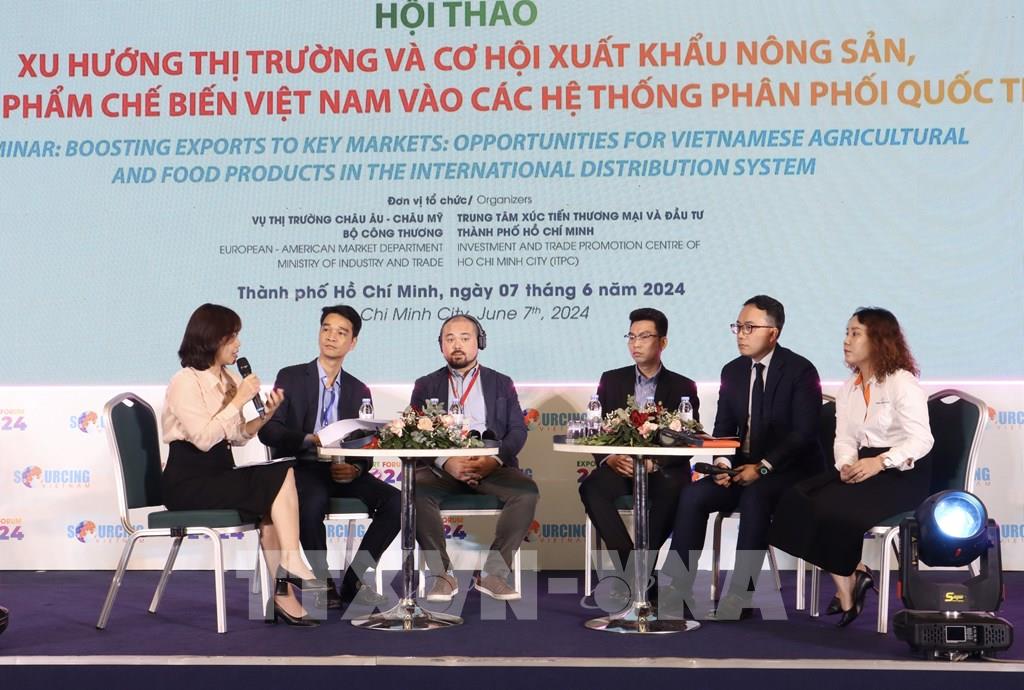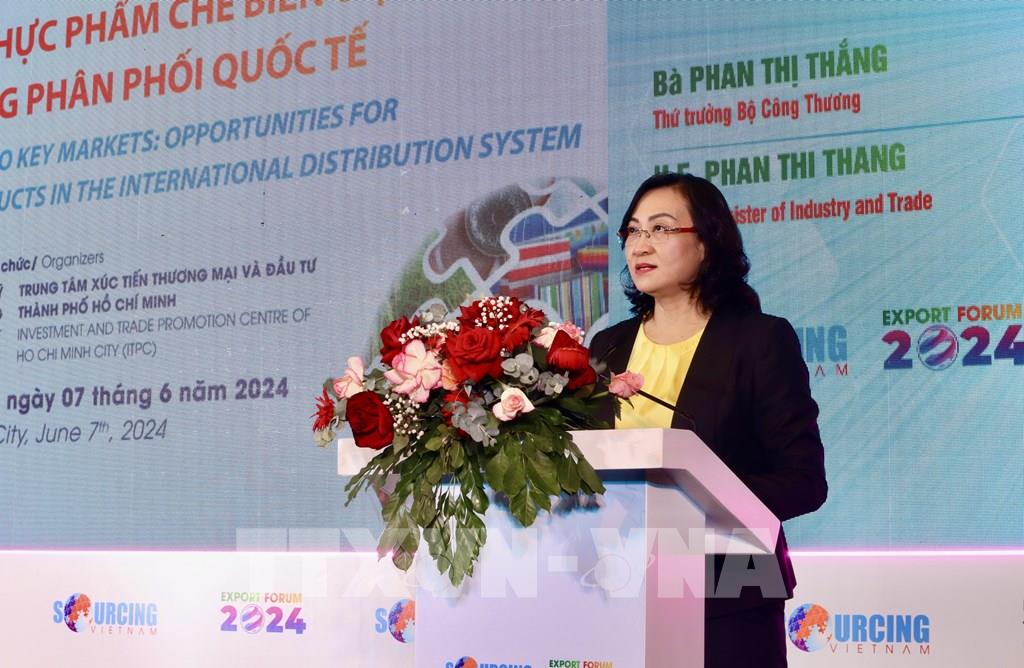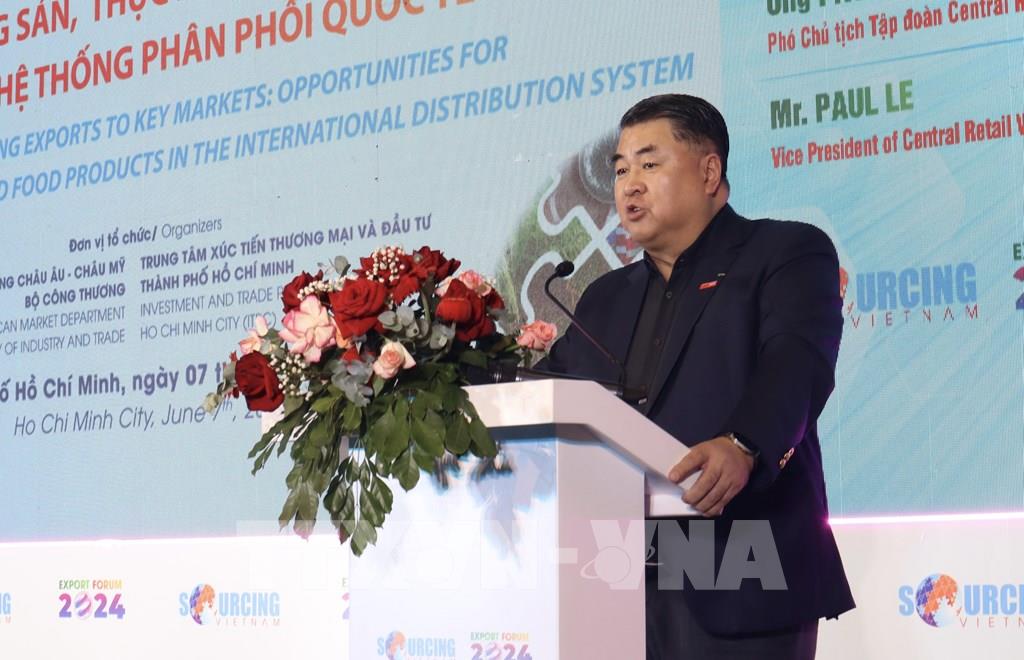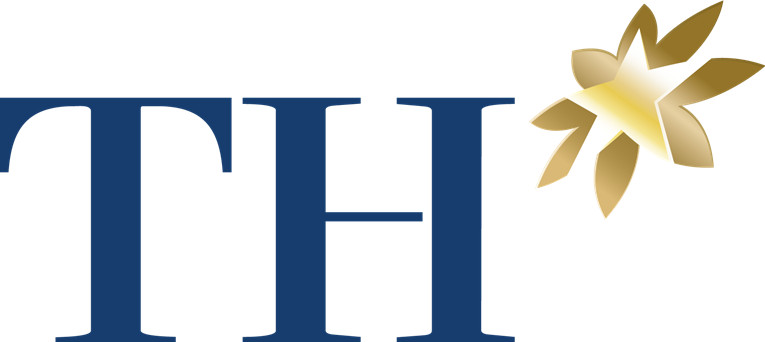What are the opportunities for exporting Vietnamese processed foods to the international distribution system?
Vietnam has advantages and potential for agricultural production and agricultural product export; however, to participate in the world food supply chain with Vietnamese business brands, there is still much work to be done.
This is the content shared by experts and businesses at the Workshop "Market trends and opportunities for exporting Vietnamese agricultural products and processed foods to international distribution systems" organized by the Ministry of Industry and Trade in Ho Chi Minh City, June 7.
Ms. Phan Thi Thang, Deputy Minister of Industry and Trade, informed: Although the world economy faced many difficulties and challenges in 2023, causing Vietnam's total export turnover to grow negatively, the export of agricultural products in Vietnam continued to recover and grow impressively, being a bright spot in export activities, contributing positively to the trade surplus. The export turnover of agricultural, forestry and fishery products reached over 53 billion USD; in which, many agricultural products increased in both value and quantity such as: rice, vegetables, coffee, cashew nuts.
Entering 2024, the growth momentum is maintained stably: the export turnover of agricultural, forestry and fishery products in the first 5 months of 2024 is estimated at 24.14 billion USD, an increase of 21% over the same period in 2023. Exports to major markets all have positive growth turnover such as to the United States (up 23.9%), China (up 8.6%), Japan (up 6.6%) and along with that, the export value of agricultural products also achieved positive growth compared to the same period last year such as: coffee reached 2.9 billion USD (up 44.1%), rice reached 2.65 billion USD (up 38.2%), vegetables and fruits reached 2.59 billion (up 28.1%), shrimp reached 1.3 billion USD (up 7.5%)...
Although many positive results have been achieved, according to Ms. Phan Thi Thang, in reality, Vietnam still mainly exports raw goods with low processing content, accounting for about 70-80% of total export turnover, so the value and competitiveness are not high; and this is not a sustainable and effective direction.
In addition, exported agricultural and food products still face many difficulties and challenges from increasingly high quality standards or requirements on the origin of goods in import markets. Protectionism tends to increase in many markets or the trend of sustainable development, carbon emission reduction and environmental protection in Vietnam's key export markets requires businesses to quickly adapt and comply.
Mr. Le Thanh Hoa, Deputy Director of the Department of Quality, Processing and Market Development, Ministry of Agriculture and Rural Development, added: Vietnam has many advantages and potentials to develop agricultural, forestry and fishery production. The annual output of agricultural products and food not only meets domestic consumption needs but also serves the processing industry and exports to many countries around the world. If in 1990, Vietnam's agricultural, forestry and fishery exports were only about 20 million USD, now they have exceeded 53 billion USD/year.
Currently, Vietnam is the world's largest supplier of cashew nuts and pepper; the world's second largest supplier of coffee and the third largest supplier of rice. Vietnamese seafood has also made great strides in surpassing the highest quality standards to participate in the supply chain in the US, EU, Japan and South Korea markets; developing many deep-processed products with high added value.
According to Mr. Le Thanh Hoa, along with production development, free trade agreements (FTAs) have contributed to creating a huge competitive advantage for Vietnam's strategic and strong agricultural, forestry and fishery products thanks to the commitment to reduce tariffs. However, in contrast to fast-growing export products such as food, vegetables and fruits, Vietnam's livestock products (cattle, poultry) despite having large production capacity still face many obstacles when exporting due to limitations in meeting requirements for disease control, food safety and hygiene, etc.
Regarding the EU market, Mr. Tran Ngoc Quan, Vietnam Trade Counselor in Belgium and the EU, said that the EU imports more than 160 billion USD worth of agricultural products each year, but agricultural products from Vietnam only account for about 4% of that. This shows that there is a lot of room to increase the market share of Vietnamese agricultural products here. However, the EU is a market with high requirements for quality, food safety and hygiene, residue control and regular updates of import regulations.
"To boost agricultural and food exports to the EU, Vietnamese businesses must regularly update market information and increase their ability to meet sustainable production, transportation and consumption standards. Product quality management is not only about production but also about raw materials, transportation, preservation, etc. Therefore, to avoid quality risks and ensure traceability, Vietnamese businesses must build a tightly linked and controlled supply chain," Mr. Tran Ngoc Quan recommended.
From a business perspective, Mr. Vo Trung Hieu, International Business Director of Vinamilk Group, said that in the past, Vietnam was considered a country without advantages in the dairy industry, but now Vinamilk-branded dairy products have been exported to more than 60 different countries. Vinamilk's secret is to proactively choose a sustainable development strategy and find suitable partners.
Accordingly, while other businesses have only mentioned green production and carbon emission reduction in recent years, Vinamilk has been implementing it in its farms and factories for more than a decade. Achieving the first carbon neutral factory and farm certification in Vietnam helps Vinamilk become the supply standard for partners who uphold sustainable development standards.
In terms of market, after building and affirming its brand in the domestic market, Vinamilk focuses on the Middle East market where there is a high demand for dairy products and seeks partners who understand customer tastes. Vinamilk also invests in continuous product development, meeting many different segments and customer groups. In addition to traditional markets, Vinamilk is targeting Africa and South America, where there is still much room for dairy products.
“Businesses need to change their sales mindset, selling products that customers need and love. To do that, businesses need to be persistent in understanding customers’ needs and consumption habits. Building a network of partners is also extremely important because this is the extended arm of the business in the market expansion strategy," Mr. Vo Trung Hieu shared.
Thuy Linh

 Experts discuss solutions to boost agricultural and food exports at the workshop. Photo: Xuan Anh - VNA
Experts discuss solutions to boost agricultural and food exports at the workshop. Photo: Xuan Anh - VNA Ms. Phan Thi Thang, Deputy Minister of Industry and Trade, speaking at the workshop. Photo: Xuan Anh - VNA
Ms. Phan Thi Thang, Deputy Minister of Industry and Trade, speaking at the workshop. Photo: Xuan Anh - VNA Mr. Paul Le, Vice President of Central Retail in Vietnam, shared about the demand for Vietnamese agricultural products and food in the supply chain at the workshop. Photo: Xuan Anh - VNA
Mr. Paul Le, Vice President of Central Retail in Vietnam, shared about the demand for Vietnamese agricultural products and food in the supply chain at the workshop. Photo: Xuan Anh - VNA
